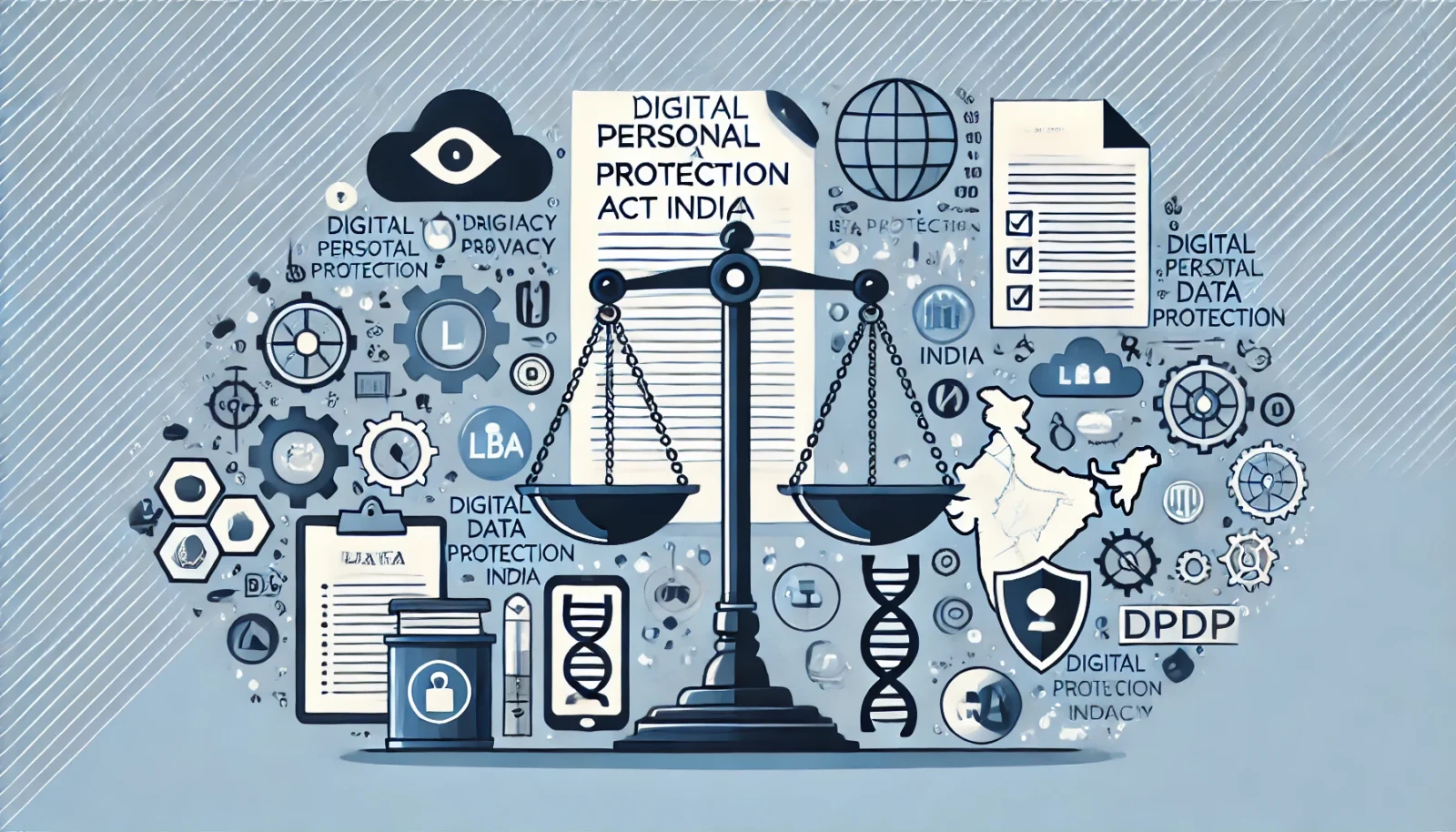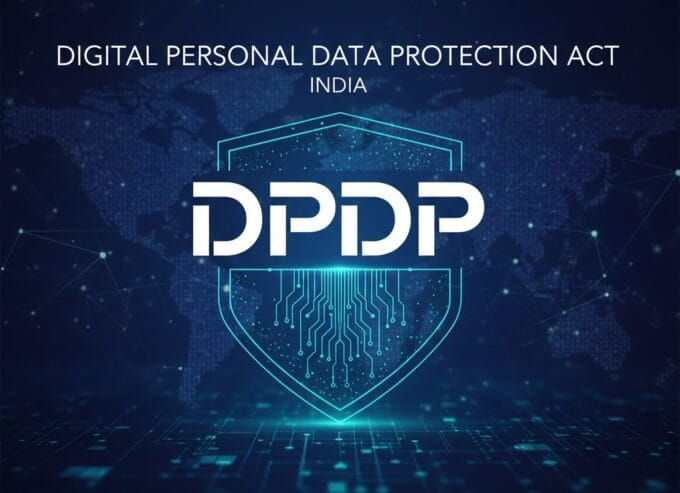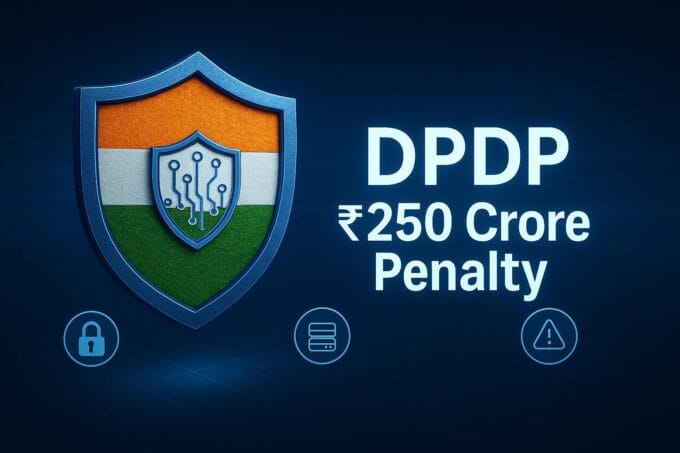The Digital Personal Data Protection Act (DPDP Act) represents a significant shift in India’s data privacy landscape. With the DPDP rules 2025 on the horizon, organisations must prioritise compliance to protect personal data and build trust with data principals. This article delves into the key aspects of the DPDP Act and the DPDP rules, offering guidance on achieving DPDP readiness and navigating the new data protection law.
Table of Contents
Key Takeaways
- Empowers Individuals: The DPDP Act gives you, the “Data Principal,” more control over your personal data, including rights to access, correct, and erase your information.
- Mandates Consent: Organizations (Data Fiduciaries) must get clear, informed consent from you before collecting and using your data, and they must only use it for the purpose you agreed to.
- Imposes Strict Obligations: Businesses handling data must implement strong security measures, report data breaches, and are held accountable for protecting personal information.
- Establishes a Watchdog: The Data Protection Board of India (DPBI) is created to enforce the Act, investigate complaints, and impose significant penalties for non-compliance.
- Promotes Responsible Data Handling: The Act aims to create a culture of responsible data management in India, balancing individual privacy with the need for data processing for lawful purposes.
Understanding the DPDP Act
Overview of the Digital Personal Data Protection Act
The DPDP Act, also known as the Digital Personal Data Protection Act, came into effect in 2023 and sets out a comprehensive framework for the processing of personal data within the territory of India. This law aims to protect the rights of data principals while recognising the legitimate needs of data fiduciaries to process data. The DPDP Act and DPDP rules represent a significant update to the Information Technology (IT) Act and usher in a new era of data privacy in India.
Key Objectives of the DPDP Act
The key objectives of the DPDP Act are to establish a robust and comprehensive framework for digital personal data protection. The Act seeks to protect the privacy of individuals by regulating how organisations, acting as data fiduciaries, handle personal data. By ensuring lawful data processing and imposing clear obligations on data fiduciaries, the Act aims to build trust in India’s digital ecosystem and promote responsible innovation. The DPDP rules 2025 further clarify these objectives.
Importance of Compliance with Data Protection Law
Compliance with the data protection law, including the DPDP Act and the forthcoming DPDP rules 2025, is of paramount importance for all organisations that process personal data. Failing to comply can result in significant penalties and reputational damage. Furthermore, compliance is not merely a legal obligation; it is a matter of ethical conduct that fosters trust between organisations and the data principals they serve, contributing to a more secure and privacy-respecting digital environment within the territory of India. The DPDP Act 2023 addresses personal data breaches, particularly concerning the personal data of children.
DPDP Rules 2025 Explained
Detailed Breakdown of DPDP Rules
The DPDP rules 2025 provide a detailed breakdown of the requirements and procedures under the DPDP Act. These digital personal data protection rules clarify various aspects of the law, including the obligations of data fiduciaries, the rights of data principals, and the framework for data processing. Organizations need to understand these nuances to ensure DPDP compliance and adhere to India’s digital personal data protection standards.
Rules Clarify Responsibilities of Data Fiduciaries
The DPDP rules 2025 significantly clarify the responsibilities of data fiduciaries. These obligations are multifaceted, encompassing several key areas:
- Ensuring data privacy
- Obtaining consent for data processing
- Implementing reasonable security safeguards to protect personal data
The DPDP rules 2025 also address the handling of personal data breach incidents. Understanding these obligations is essential for data fiduciaries to maintain DPDP compliance and build trust with data principals.
Impact of DPDP Rules on Data Principals
The DPDP rules 2025 have a direct impact on data principals, as they outline the rights and protections afforded to individuals regarding their personal data. Data principals have specific rights, including:
- The right to access their personal data.
- The right to correct any inaccuracies.
- The right to erase their personal data held by data fiduciaries.
The rules empower data principals to exercise control over their personal data and seek redress in case of violations. This focus on data privacy is central to the DPDP Act 2023.
DPDP Readiness for Organizations
Steps for Achieving DPDP Compliance
Achieving DPDP compliance requires organizations to take several proactive steps. This includes conducting a thorough assessment of their data processing activities, implementing appropriate security measures, and establishing clear policies and procedures for handling personal data. Organizations should also invest in training their employees on the DPDP Act and DPDP rules to ensure adherence to India’s digital personal data protection act and data protection law within the territory of India.
Building Trust Through Effective Data Protection
Effective data protection is essential for building trust between organizations and data principals. By demonstrating a commitment to data privacy and implementing robust security measures, organizations can foster confidence among their customers and stakeholders. DPDP compliance is not merely a legal requirement but also an opportunity to differentiate oneself by prioritizing data protection and demonstrating ethical conduct and processing of personal data.
Resources for Enhancing DPDP Readiness
Organizations can leverage various resources to enhance their DPDP readiness. These resources include guidance documents from the Data Protection Board of India, legal counsel specializing in data protection law, and technology solutions designed to support DPDP compliance. Staying informed about the latest developments and best practices is crucial for navigating the evolving data privacy landscape and ensuring that organizations are fully prepared for the DPDP Act 2023 and DPDP rules 2025 and obligations of data fiduciaries.
Processing of Personal Data Under DPDP
Guidelines for Processing Personal Data
The DPDP Act 2023 lays down specific guidelines for the processing of personal data, ensuring that data fiduciaries handle information responsibly. These digital personal data protection rules emphasise the need for transparency, accountability, and fairness in all data processing activities. DPDP compliance involves adhering to these guidelines, which are further elaborated in the DPDP rules 2025, to build trust with data principals and maintain data privacy. Organisations have to implement these acts and rules. India’s digital personal data protection laws are robust.
Special Considerations for Personal Data of Children
The DPDP Act and DPDP rules 2025 pay special attention to the protection of the personal data of children. Given the vulnerability of minors, the Digital Personal Data Protection Act mandates stricter safeguards for processing their data. Organisations must obtain verifiable parental consent before collecting or using the personal data of a child. Compliance with these requirements is critical to protect personal data and uphold the rights of children, as highlighted in India’s digital framework for data privacy. The Act 2023 and DPDP rules provide specifics.
Data Minimization and Purpose Limitation Principles
The principles of data minimisation and purpose limitation are central to the DPDP Act and DPDP rules 2025. These principles dictate that data fiduciaries should only collect and process personal data that is necessary for specified, explicit, and legitimate purposes. Organisations must ensure that data processing is limited to what is relevant and proportionate to the intended purpose, avoiding excessive or irrelevant data collection. Adhering to these principles is vital for DPDP compliance and maintaining data privacy. Processing digital personal data should be minimized according to India’s regulations.
Future of Data Protection in India
Evolution of the Privacy Regime in India
The DPDP Act marks a significant milestone in the evolution of the privacy regime in India. Before the DPDP Act 2023, data protection was primarily governed by the Information Technology Act 2000, which had limitations in addressing the complexities of the digital age. The DPDP rules aim to create a more comprehensive and robust framework for data privacy, aligning with international best practices and addressing the unique needs of India’s digital landscape. DPDP readiness has been lawful since November 2025.
Impact of Digital India Initiative on Data Protection
The Digital India initiative has accelerated the digitisation of various sectors, leading to a surge in data processing activities. The DPDP Act and DPDP rules 2025 play a crucial role in safeguarding data privacy within this rapidly evolving digital ecosystem. By providing a legal framework for responsible data processing, the Digital Personal Data Protection Act complements the Digital India initiative by fostering trust and accountability in the digital realm. Data fiduciaries must ensure compliance to build trust with data principals. India’s DPDP rules will affect all organisations.
Looking Ahead: The Role of DPDP in a Digital Landscape
Looking ahead, the DPDP Act 2023 and DPDP rules 2025 will play a pivotal role in shaping India’s digital landscape. As technology continues to advance and data processing becomes more pervasive, the DPDP framework will provide essential guidance and safeguards for protecting personal data. By fostering a culture of data privacy and accountability, the Act and DPDP rules will contribute to a more secure and trustworthy digital environment for citizens and businesses alike within the territory of India. The DPDPA is important for compliance with the data protection law.
Frequently Asked Questions (FAQs)
When did the DPDP Act come into effect in India?
The DPDP Act was enacted in August 2023. Its enforcement is being implemented in a phased manner, with detailed operational requirements notified through rules and government notifications.
Who does the DPDP Act apply to?
The Act applies to:
– All organizations processing digital personal data in India
– Foreign entities processing personal data of individuals located in India
– Government bodies, public sector units (PSUs), startups, MSMEs, and enterprises
If you process employee, customer, vendor, or user data digitally, the Act applies to you.
What is considered “personal data” under the DPDP Act?
Personal data means any data about an identifiable individual, including:
– Name, phone number, email ID
– Aadhaar, PAN, employee ID
– IP address, device identifiers
– HR records, payroll data, login credentials
The Act focuses only on digital personal data, not purely offline records.
Who is a Data Principal under the DPDP Act?
A Data Principal is the individual to whom the personal data relates.
For example:
– Employees (for HR data)
– Customers (for service data)
– Users (for app or website data)














Leave a comment